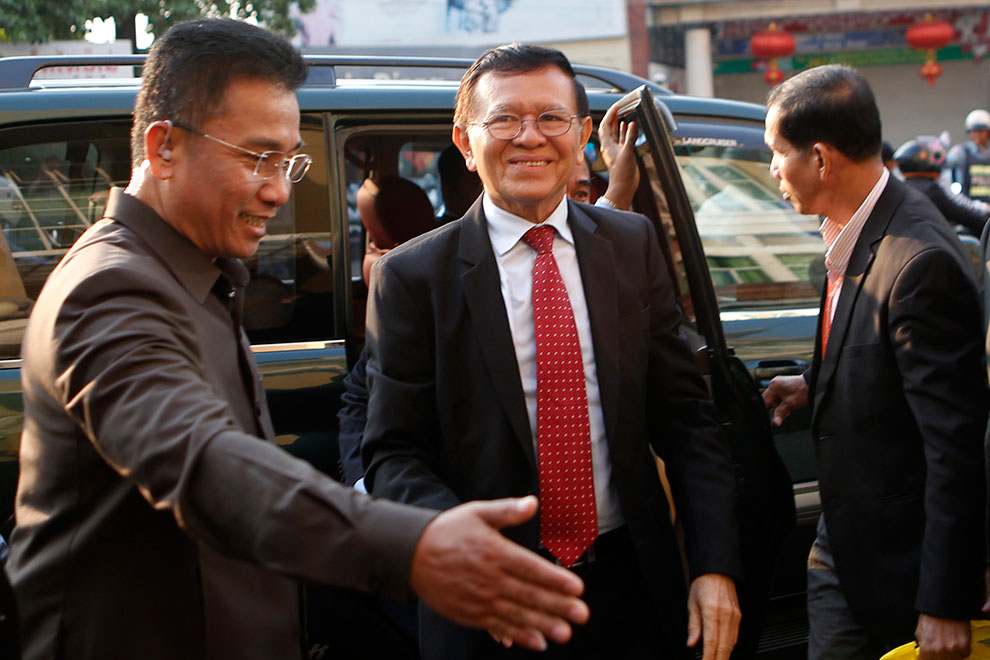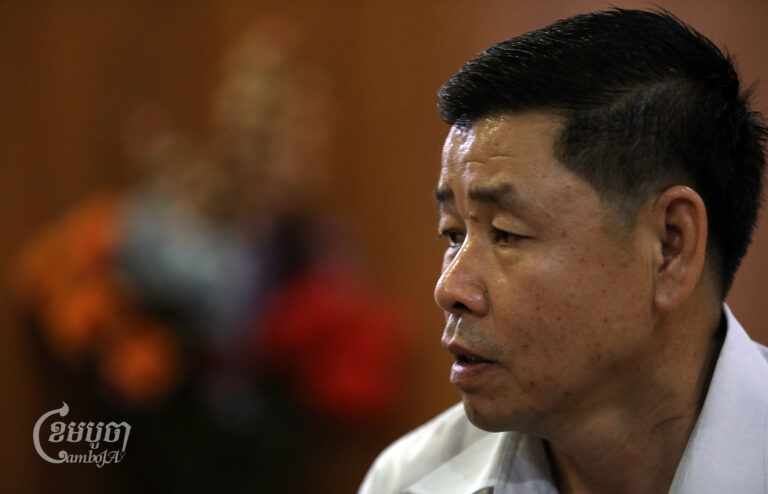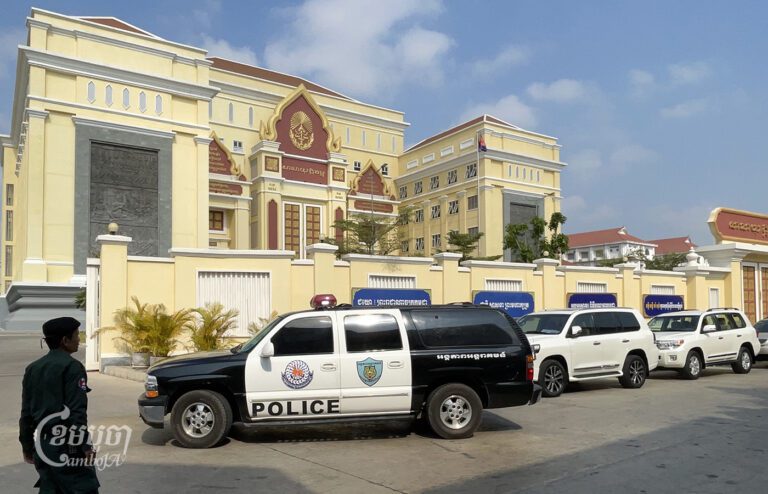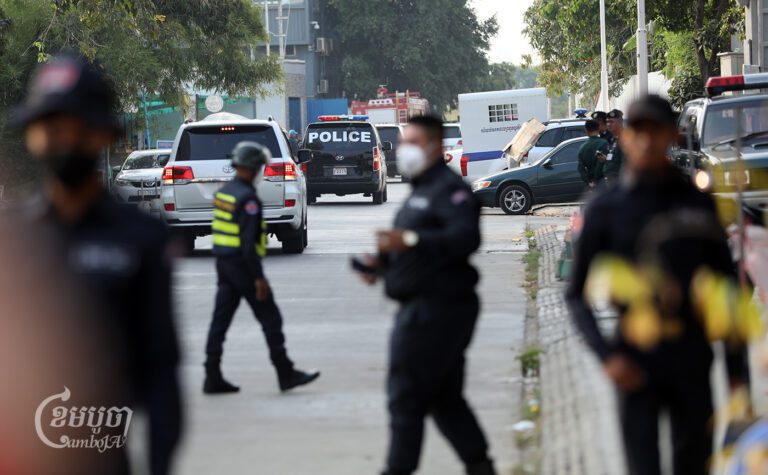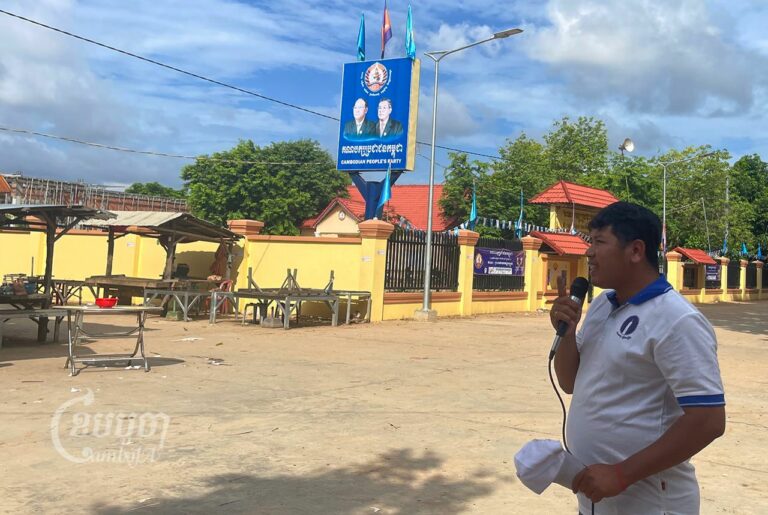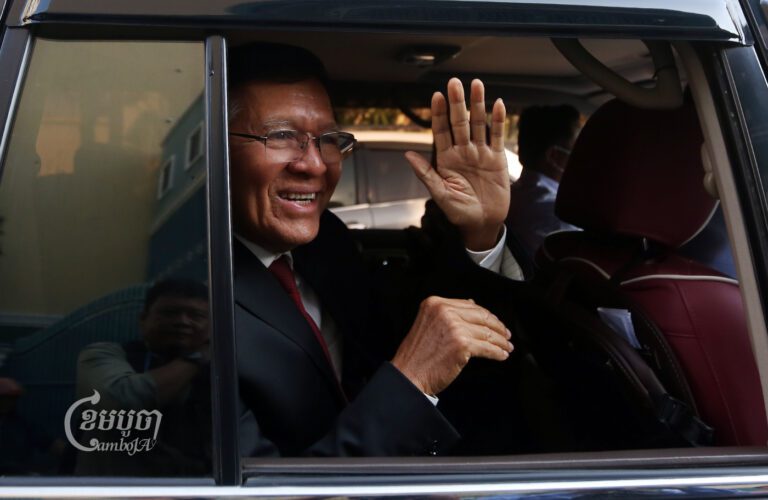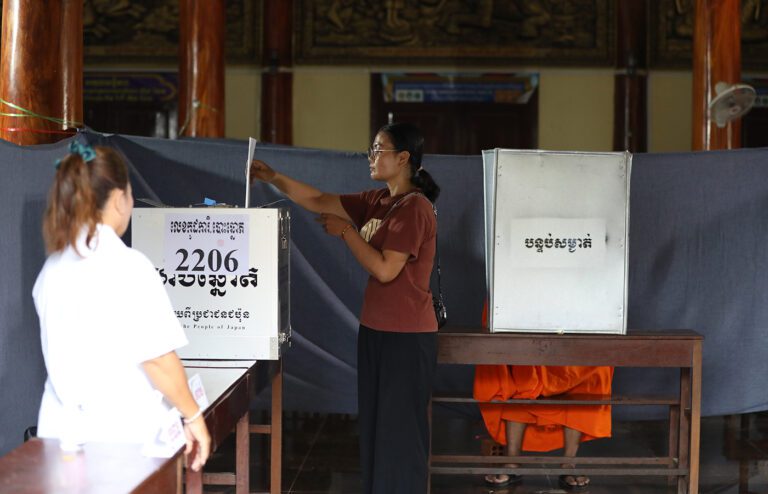The Phnom Penh Municipal Court on Wednesday showed the full video of Kem Sokha’s 2013 speech that is at the heart of his treason trial, according to lawyers present.
A government lawyer said the hourlong video added just two words to the key section of the speech that the government had presented to the court in condensed form. But Sokha’s lawyers, who had pushed for the full video to be shown, said the shortened video should be considered “false evidence” because it had been edited.
Sokha, president of the dissolved opposition CNRP, is on trial for conspiracy with a foreign power, more than two years after his arrest, and faces up to 30 years in prison if found guilty. The ruling party has accused him of working with the U.S. to overthrow the government, with a two-minute clip of the 2013 speech in Melbourne allegedly exposing his intentions.
In a government transcript of the shortened video, Sokha appears to say that the U.S. has supported him since his entry to politics in 1993, and the U.S. advised him to drum up grassroots support in the model of the color revolution that toppled Yugoslavian dictator Slobodan Milosevic in 2000. The advice led him to establish the Cambodian Center for Human Rights (CCHR) in 2002, he appears to say
Ky Tech, a lawyer representing the government, told reporters after the hearing that the full-length video submitted by the defense was a gift for him, backing up the government’s argument.
The shortened video was virtually the same as the long version for the key part of the speech, he said.
“It just lost the words ‘dictatorship’ and ‘dictate’ in Khmer, but outside of that, it is 100 percent the same,” Tech said.
The two lost words did not change the meaning of the speech, he said.
Meng Sopheary, one of Sokha’s lawyers, told reporters that the shortened video was like showing only one part of a book containing bad characters without conveying the book’s full meaning.
Furthermore, the prosecution and government lawyers had acknowledged that the shortened video evidence was edited, Sopheary said.
“The inculpatory evidence of the short video was edited, so it is false evidence,” she said. “So we cannot take evidence that has been edited. It cannot be used as inculpatory evidence.”
Pheng Heng, another Sokha lawyer, told reporters after the earlier morning session that U.S. donor funding for CCHR was no secret, and did not mean there was any conspiracy.
USAID had been registered with the Interior Ministry since 1960 and helped many organizations and the government, Heng said. He added that it had supported CCHR, not Sokha directly.
“We want to clarify that the activities were transparent as they were not secret,” Heng said.
Rights group Licadho’s monitoring manager, Am Sam Ath, said the morning session consisted mostly of lawyers requesting the submission of new evidence. The presiding judge appeared to be open to the requests, he said.
Sokha’s trial is set to continue on Thursday morning.
CamboJA News applied on Wednesday morning to attend the hearing but was denied, with the court saying the courtroom was already full.
Human Rights Watch on Wednesday criticized the court for limiting access to the trial based on its own discretion.
“The bogus prosecution of Kem Sokha is made even worse by unjustifiably keeping the media and rights monitors out of the courtroom,” said Phil Robertson, deputy Asia director. “Cambodian authorities should drop the charges against Sokha instead of trying to keep his shabby and unlawful treatment out of public view.”


